It can be difficult for students to pick just one major that measures up to their goals. For some, a single area of study isn’t enough – they decided to pick a combination of wide-ranging interests and unique career paths. These three students at the University of Missouri have combined majors, minors and emphases to create a college experience that’s as unique as they are.
Allie Gifford has always dreamt of working abroad, but it’s taken some time to come up with the perfect path.
Interested in international advertising, she decided to pursue a journalism degree with an emphasis in strategic communication. While this program helped with her goals in advertising, Gifford wanted to discover an additional program that would allow for a global focus. She soon discovered the international studies major, which offered her a customizable emphasis in European studies. This emphasis was especially appealing, as she planned to minor in French.
Pursuing this program had not always been an obvious choice and Gifford struggled to decide until only a month before applying to Mizzou. The decision to pursue international advertising came as a culmination of interests.
“I wanted to be a doctor and I wanted to be a lawyer. You know what I mean? I had no idea,” Gifford said. “So, I think being creative, traveling, it sounds like everything I could ever want.”
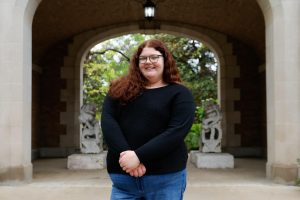
To deepen her experiences with international culture while still in school, Gifford began volunteering as a collegiate ambassador with the Asian Affairs Center. In this role, she works with international students to serve as a friend, help with English and act as a resource about American culture. Gifford said she appreciates learning about the lives of others more than sharing her knowledge, but she looks forward to going abroad for more immersion.
“From America, I get to learn about other cultures through the people I meet,” she said. “My goal is to kind of do the opposite, like go there and learn about cultures.”
Through a connection in the Asian Affairs Center, Gifford secured a position studying abroad in South Korea this summer. She said she finds that the combination of majors has allowed her to discover more opportunities through networking events and interactions with those who share her interests.
“When I started this, I kind of thought this was a really outlandish kind of thing,” Gifford said. “Like, I don’t want to live in America, I want to live and work abroad. But being in these programs has taught me, there’s a lot of people that think that way.”
Liza Kadyschuk has known she wanted to attend law school since middle school. In her first year at MU, she decided a triple major was the way to go.
Kadyschuk began on the pre-law track with a psychology major. Although not directly law or government-focused, she said she knew this choice would provide opportunities if law school didn’t work out. It also gave her a chance to pursue an area of personal interest with the overlap between science and history.
Once she joined the Mizzou Mock Trial team, everything changed.
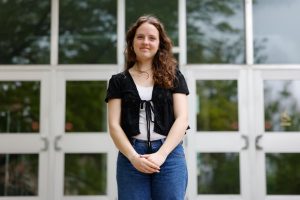
“I realized everybody on there has like, double majors, triple majors and they explore a lot of different interests,” Kadyschuk said.
Seeing the programs other students took advantage of led her to begin looking for additional majors herself, especially those that would allow her to grow her writing and analysis skills. Kadyschuk soon took on a political science major that she said will help to strengthen and diversify her future law school applications.
Before long, adding a third major in constitutional democracy became a natural step. Many of Kadyschuck’s friends are in the Kinder Institute on Constitutional Democracy and she was impressed by its wide variety of distinctive opportunities.
“They have all sorts of study abroad programs and different classes that are super unique. I haven’t seen them anywhere else,” she said. “So I was like, I have to get around this too.”
While balancing three majors can be challenging, the overlap in requirements and disciplines helps to make things possible. Although the greatest similarities are between political science and constitutional democracy, psychology plays a role in fulfilling necessary science credits.
Even with three majors, Kadyschuk is on track to graduate early. She attributes this ambitious spirit to her parents’ encouragement of hard work and her desire to get the most out of every experience.
“Why add one major when you can have three for the same price? It’s that kind of mindset,” she said. “If I’m really passionate about history and other disciplines, I might as well just try to explore those as well, if I can at the same time.”
After being editor-in-chief of his high school paper, majoring in journalism seemed to be the perfect fit for Luke Duffy. However, after a few semesters, he chose an emphasis in strategic communications to pursue emerging goals that didn’t fit the journalistic norm. Specifically, he was drawn to social advocacy.
He said this path wasn’t always the most readily encouraged. Some family members suggested majoring in math or computer science to prepare for a technology-centered world. While these areas seemed far from his goals, Duffy recognized the importance of math in journalism and looked for a way to tie it all together.
After taking microeconomics, Duffy decided to add another major.
“I kind of had it in the back of my mind that maybe it would be helpful to have a math thing,” he said. “Econ is just really where I found passion.”
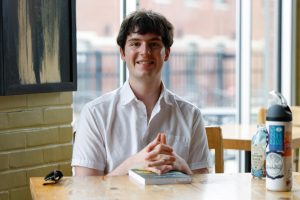
Duffy also has a Spanish minor, which helps him pursue his aspirations of international work. He said he hopes to one day become a foreign service officer with the Department of State or serve in a communications role for an aid organization.
“It just blends so many things I’m interested in, between policy and then just language learning, learning about different cultures and the primary goal of the State Department, which is to promote democracy around the world,” he said.
For Duffy, balancing a variety of topics can be difficult at times. Although some aspects are shared — especially between economics and strategic communication — there are often jumps between drastically different types of work.
“Sometimes I do feel like I’m still in high school, where one minute I’ll be writing an essay, and the next one I’ll be doing a math problem,” he said.
While this style of education can be challenging, Duffy said he enjoys the variety and constant learning.
“When I reflect on that, I just think about how that’s really my comfort zone,” he said. “I’m most interested and engaged when I can go to classes in a lot of different disciplines and think about the connections between them.”
Following their passions, these students have created a mosaic of coursework, clubs and commitments that allows them to fully personalize their time on campus. Furthermore, they display the creativity that comes with making the college experience their own and the connections that exist between seemingly unrelated areas of study.
Edited by Molly Levine | [email protected]
Copyedited by Avery Copeland and Natalie Kientzy | [email protected]
Edited by Annie Goodykoontz | [email protected]



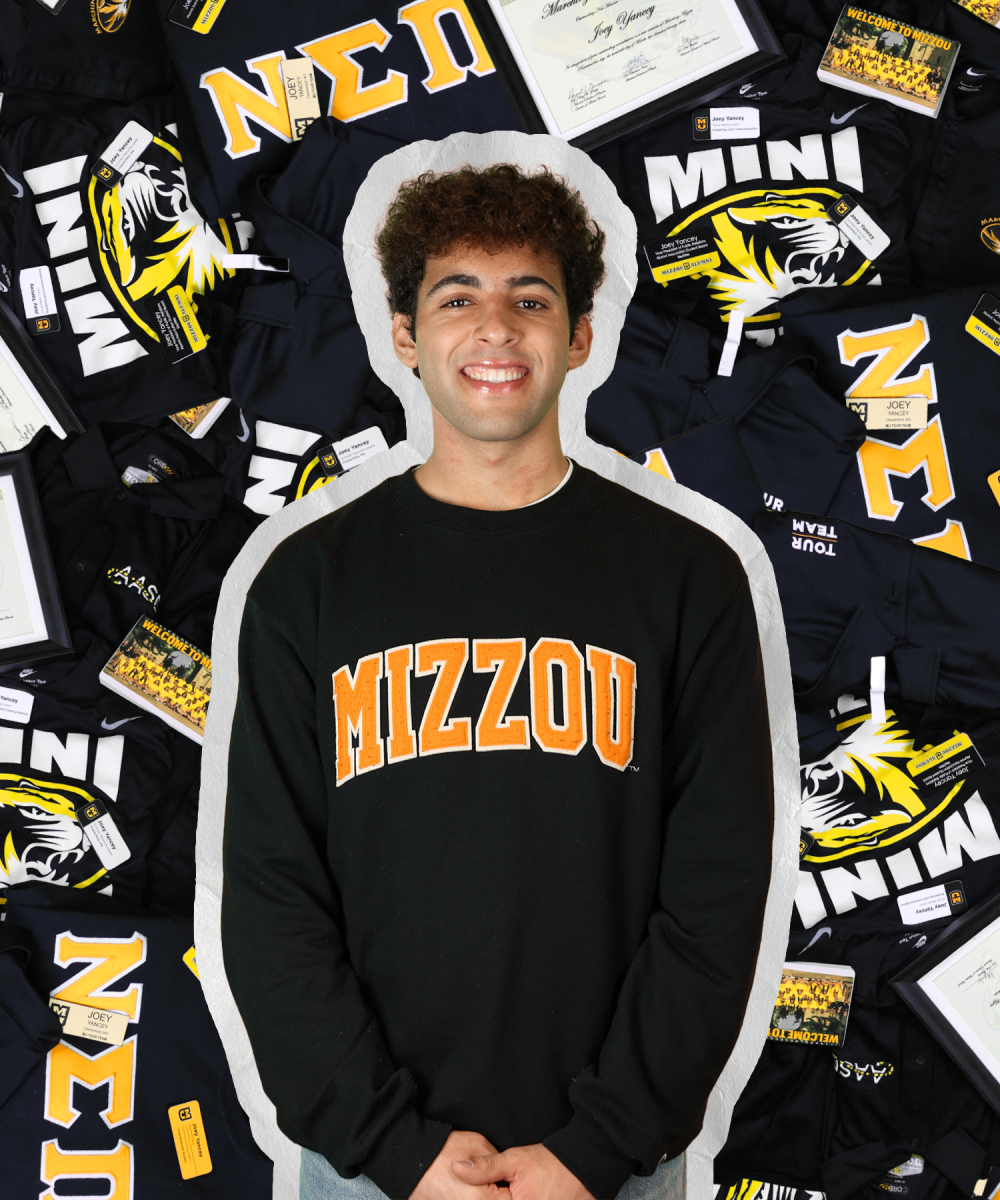
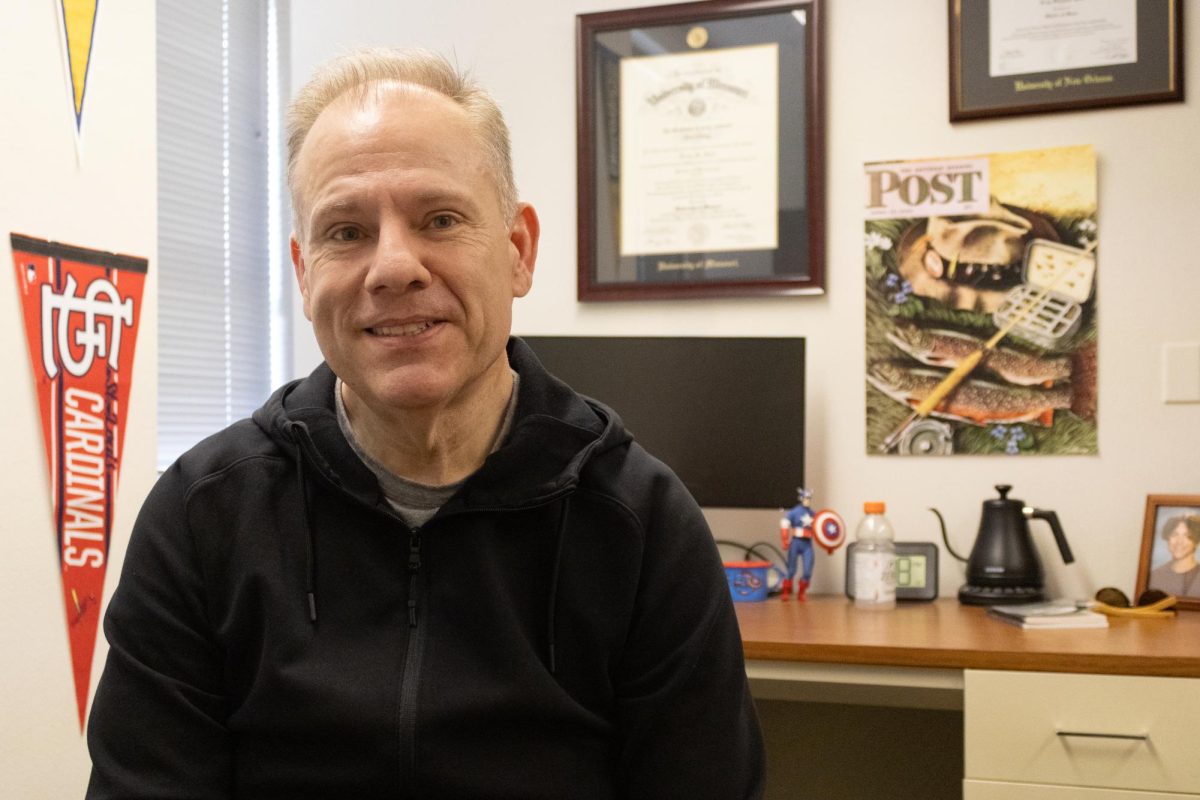
Mariana Vallez • Jun 3, 2025 at 10:09 am
Hey! I’m a incoming freshman at Mizzou. Found this article while I was researching the possibility of triple majoring. It was really helpful to know that many students at Mizzou take on that challenge. Thank you for putting out this article; just wanted you all to know that it was really helpful!